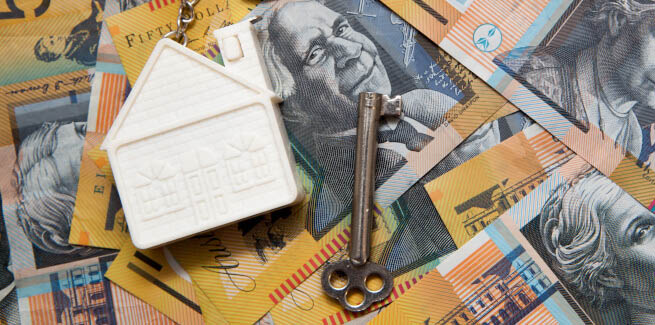A research paper from The McKell Institute, a think tank, has analysed the potential effects of allowing prospective house buyers to access superannuation savings to place towards purchases.
The notion of super for housing has been pushed by various Liberal backbenchers in the past, including MP Tim Wilson and senator Andrew Bragg, who have touted the idea as a solution for first home buyers struggling to enter the property market.
However, The McKell Institute’s new report has warned that such a policy could pour petrol on the fire of surging prices by pushing up demand for credit and, in turn, for housing.
The think tank analysed data from the Household Income and Labour Dynamics Australia (HILDA) survey as well as from the property market.
It found that allowing prospective buyers to access between $10,000 and $30,000 in super savings for a house deposit would have no material impact on the overall rate of home ownership.
However, while allowing aspiring buyers to access $60,000 and above from their super would see more people transition into home ownership, it would “place inflationary pressure on house prices in Australia’s major cities”, the report cautioned.
In Sydney, house prices would face a 4.6 per cent rise as a result, while Melbourne would cop a 10.4 per cent increase and Brisbane a 14.8 per cent ascent.
Darwin was projected to see a 12.7 per cent increase, while Perth was tipped for 18.8 per cent.
But other cities face price changes greater than 20 per cent, including Adelaide (20 per cent), Hobart (22.8 per cent) and Canberra (28.3 per cent).
Allowing people to access $40,000 would result in an increase in number of renters to enter home ownership earlier than planned, but the analysis has suggested that as much as $80,000 would be needed for many renters to transition.
Further, The McKell Institute stated super for housing would lead to buyers being worse off financially over their lifetime – with cash placed in home ownership likely to compound at a lower rate than cash invested in super for the long term.
Assuming 25 per cent of households decided to take up the option to withdraw $60,000 from their super, there would be a further 209,000 households transitioning to home ownership.
But the distribution of those 209,000 households entering ownership would mostly be concentrated in Sydney (with 63,542 buyers predicted, holding $23.2 billion in new debt) and Melbourne (69,340, with $25.4 billion in loans). Both cities would then see an effect on house prices of around 2.85 per cent.
However in other cities, a greater effect is expected on house prices, with $60,000 able to go further.
In Canberra and Darwin (combined, estimated to have 1,778 buyers with $618 million in loans), could see a rise in house prices of 36.1 per cent.
Brisbane, with 17,720 new owners and $6.8 billion in new loans, would see a 11.95 per cent increase in prices, while Hobart, with 6,219 new owners and $1.3 billion in loans, would result in a 12.24 per cent rise in prices.
Meanwhile, Perth was calculated to see a 9.23 per cent rise, after 32,465 new owners gained $11.2 billion in loans, while Adelaide was estimated to see a 11.27 per cent price increase, as a consequence of 18,424 new owners with $4.8 billion in new loans.
“…Individuals accessing super-for-housing now would drive up housing prices further, in addition to harming their own financial future,” the report stated.
“Subsequent rounds of prospective home buyers would therefore face higher levels of prices still, and demands on their super would need to be higher again to compensate.”
The Australian government has long favoured demand-side measures, including more recently, the first home loan deposit scheme, HomeBuilder and the Family Home Guarantee.
Indirect policies have also played a role, such as capital gains tax concessions for both owner-occupiers and investors, as well as negative gearing.
In some states, there are also state government-sponsored providers of low-cost home loans, low-deposit products and shared equity home loan products.
But the report expressed doubts about the effectiveness of such interventions, given that house prices have grown faster than incomes.
Real house prices trebled between 1985 and 2015 and the price to income ratio doubled during the period.
“Research has shown that demand-side interventions have had limited impacts on home ownership rates,” the McKell report said.
“Indeed, they have inflated housing prices and exacerbated wealth inequalities by bringing forward the purchase decisions of households ultimately already likely to become eventual home owners.”
More responsive supply and construction output would mute price effects, the paper argued.
[Related: Government to revamp Pension Loans Scheme]
 ;
;
